John Staddon is James B. Duke Professor of Psychology and Professor of Biology emeritus at Duke University. His most recent books are The New Behaviorism: Foundations of Behavioral Science, 3rd edition (Psychology Press, 2021) and Science in an Age of Unreason (Regnery, 2022).

“Is there any good principled reason not to have open borders?” That is a quote from Harvard professor Michael Sandel in “Two of the World’s Leading Thinkers on How the Left Went Astray,” a New York Times article published on Jan 18. The piece promotes two stars in the progressive pantheon: Sandel and French economist Thomas […]
Read More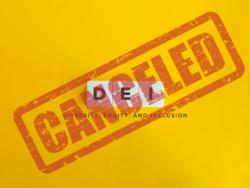
“If critics have a problem with the goal of diversity, they should say so,” writes law professor Stacy Hawkins in a vigorous counterattack against critics of “diversity, equity, and inclusion” (DEI) mandates. Well, here I am. Hawkins notes that even some DEI critics acknowledge the value of racial and ethnic diversity. But they are wrong: […]
Read More
Suppose I were to tell you that in a North Carolina county, neighborhoods with a “lower percentage of White individuals … lower economic and racial spatial advantage, and higher area deprivation” and “higher reported violent crimes, evictions, poverty, unemployment, uninsurance, and child care center density, as well as lower election participation, income, and education,” are […]
Read More
I know of no country in which there is so little independence of mind and freedom of discussion as in America — Alexis de Tocqueville From 1991 to 1994, at Duke University, I edited a publication called the Faculty Newsletter. The Newsletter had a short and rather erratic history and folded a couple of years […]
Read More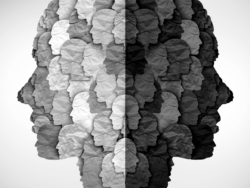
Mahzarin Banaji and Frank Dobbin, a Harvard psychologist and sociologist, explain in a recent Wall Street Journal article, “Why DEI Training Doesn’t Work—and How to Fix It.” The article is based on something called the Implicit Association Test (IAT), invented in 1998 and available to all on a Harvard University website. The IAT is a […]
Read More
Affirmative-action peer review The National Institutes of Health (NIH) has supported extramural biomedical research since the end of WWII. This year, the program spent close to $40 billion. The basic concept is simple. Write down what you, the scientist, want to do and why; estimate how much it will cost each year; and send the […]
Read More
Science leadership has forgotten … science The texts for today are from Dr. Marcia McNutt, editor-in-chief of Science from 2013–2016 and current president of the National Academy of Sciences. First, we have an interview with the Columbia University Center on Global Energy Policy from 2018: Interviewer: I want to touch on a topic that’s another […]
Read More
A law school dean tries to square the circle The ruckus at Stanford Law School surrounding the March 9 shout-down of Judge Kyle Duncan has abated. But we can learn much from four documents that have since emerged: Associate Dean for Diversity, Equity, and Inclusion Tirien Steinbach’s placatory speech, statements by two ‘marginalized’ student groups, […]
Read More
Wikipedia is probably the most widely used encyclopedia in the world. If you’re looking for facts, it is pretty reliable. For example, if you want to compare the number of traffic roundabouts per capita in the US and other countries, Wikipedia will provide a nice graph from the World Economic Forum showing that the UK […]
Read More
How social science has become social commentary It is well known that social science—psychology, sociology, and economics—has devolved into more than one hundred sub-specialties. Less well known is the result: criticism, which is essential to science, is increasingly restricted to bubbles of the like-minded. This has allowed critical criteria to diverge to the point that […]
Read More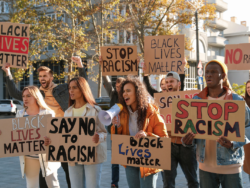
Western civilization depends on science, but science, especially social science, is now under threat. Until WWII, science was mostly a vocation. Scientists were motivated by curiosity and the search for verifiable truth. Since the growth of centralized, largely governmental funding, science has become not so much a vocation as a profession. Career incentives now increasingly […]
Read More
How ‘Identity Science’ Canceled an Editor The U.S. Supreme Court, in its 1978 Bakke decision, shoehorned racial preferences into legality by identifying (racial and ethnic) diversity as an intrinsic good, a non-merit factor that may be legally used to tilt hiring and college admissions. Now, diversity, equity, and inclusion (DEI) have become part of the […]
Read More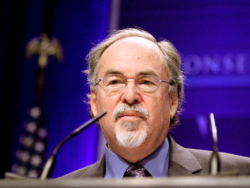
The Academic Bill of Rights revisited David Horowitz is a controversial fellow. Born into a communist family in New York and involved early on with the Black Panthers, he remained on the Left until he was repulsed by the murder of a woman friend, a killing for which he held the Panthers responsible. He describes […]
Read More
The Chronicle of Higher Education (CHE) remains steadfast in its support of social justice and liberal politics. In a typical op-ed entitled “The Right-Wing Attempt to Control Higher Ed: Demolishing independent expertise is a central goal of the Republican Party,” education professors Brendan Cantwell and Barrett J. Taylor showed their antipathy toward Republicans and linked […]
Read More
Science versus Sentimentality “What we’ve got here is failure to communicate!” Thus spake prison guard Strother Martin in the movie Cool Hand Luke, and so it is now between the woke and their opponents. In a recent dispute over affirmative action that got some publicity, one party affirms that, despite her best efforts, she has […]
Read More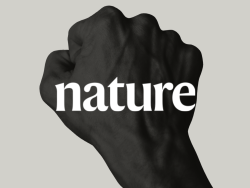
“Science must overcome its racist legacy” is the headline, followed by a commitment from four guest editors of color to “help decolonize research and forge a path towards restorative justice and reconciliation,” a reparations-tinged evocation of post-apartheid South Africa. It is both embarrassing and disgraceful that Nature, the preeminent British scientific journal, should surrender science […]
Read More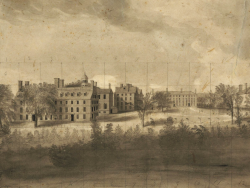
Are modern African Americans worse off for slavery? Harvard was directly complicit in America’s system of racial bondage from the College’s earliest days in the 17th century until slavery in Massachusetts ended in 1783, and Harvard continued to be indirectly involved through extensive financial and other ties to the slave South up to the time […]
Read More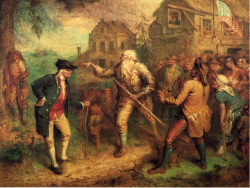
A well-known podcaster has the custom of going “off the grid” for a month each summer, to gain some perspective. I can beat that: I have been retired from academic teaching and research for nearly 14 years and have rarely visited my campus during that time. But last year, I finally encountered the university first-hand, […]
Read More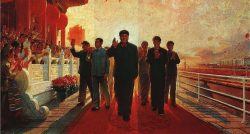
Higher education has begun a transformation similar to the Chinese “Cultural Revolution” of 1966. This claim may sound extreme, but look at the similarities for yourself. Like the Cultural Revolution, the energized identity-politics movement presents itself as a cleansing force. Pure Maoism was being corrupted by covert capitalist sympathizers—they had to be rooted out. In […]
Read More